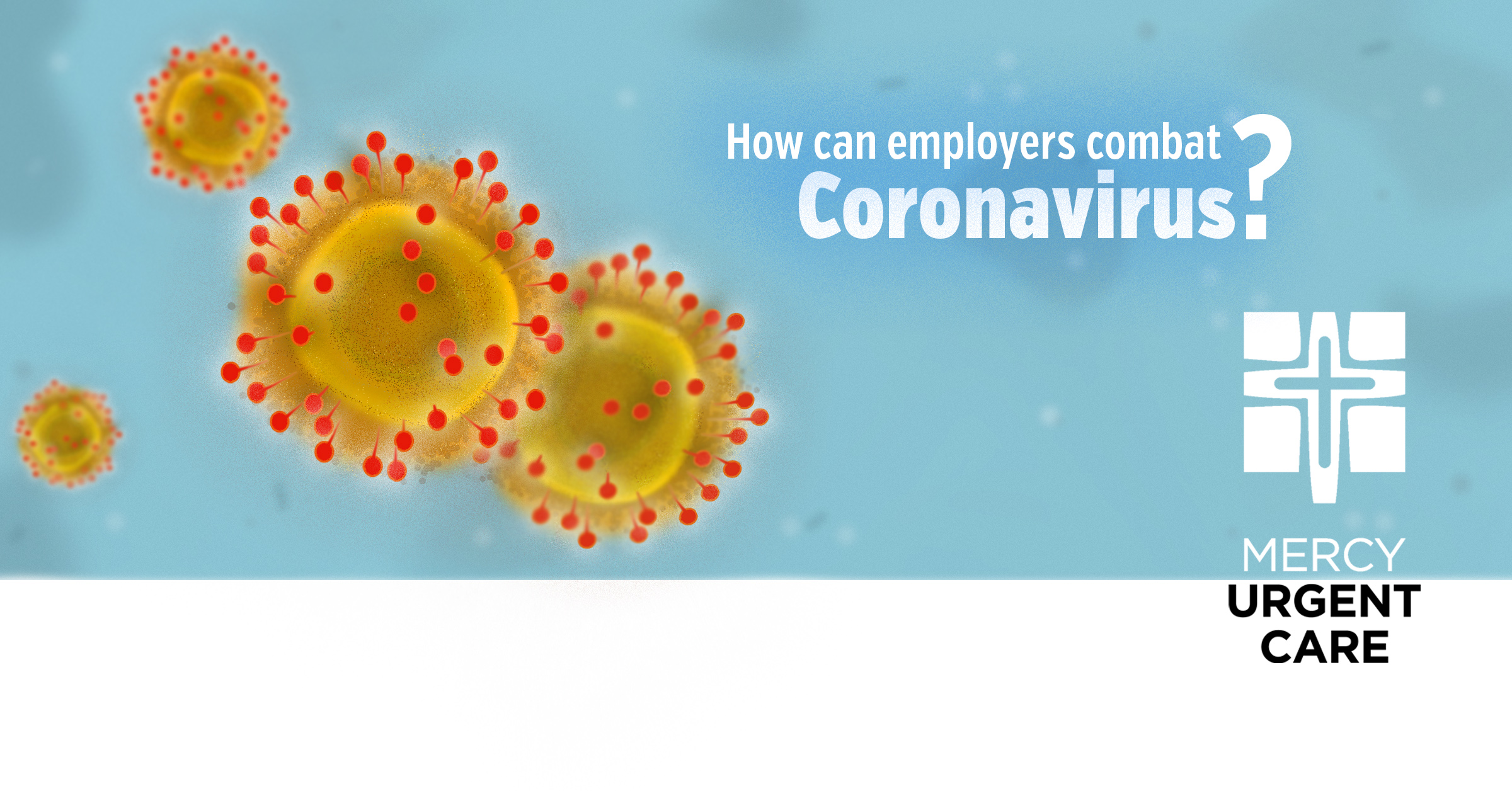 For the last month, the world has been buzzing with concern over a new coronavirus, COVID-19, which has spread to more than 45,000 people across at least 25 countries in just a few short weeks.
For the last month, the world has been buzzing with concern over a new coronavirus, COVID-19, which has spread to more than 45,000 people across at least 25 countries in just a few short weeks.
The moderately infectious illness, similar to the 2003 SARS outbreak, is predicted to have a fatality rate of less than 3 percent, with each infected individual likely to spread the virus to between 1.5 and 3.5 new people. In other words: It’s somewhat more contagious than the flu, but not nearly as infectious as chickenpox. Patients with COVID-19 have reported a range of mild to severe symptoms, including fever, cough and shortness of breath.
So far, only 15 cases have been confirmed in the United States (in Arizona, California, Illinois, Massachusetts, Texas, Wisconsin and Washington) — but Mercy Urgent Care strongly urges our communities (and its many employers) to be prepared, should COVID-19 eventually make its way to Western North Carolina.
To prevent the spread of both COVID-19, as well as the more immediate threat of the seasonal flu, the CDC recommends employers:
- actively encourage sick employees to stay home.
- Employees who have symptoms of acute respiratory illness are recommended to stay home and not come to work until they are free of fever, signs of a fever, and any other symptoms for at least 24 hours — without the use of fever-reducing or other symptom-altering medicines. Employees should notify their supervisor and stay home if they are sick.
- Ensure that your sick leave policies are flexible and consistent with public health guidance and that employees are aware of these policies.
- Do not require a health care provider’s note for employees who are sick with acute respiratory illness to validate their illness or to return to work, as healthcare provider offices and medical facilities may be extremely busy and not able to provide such documentation in a timely way.
- separate sick employees from those without symptoms.
- Employees who arrive to work with symptoms like a cough or shortness of breath — or those who develop symptoms throughout the day — should be separated from other employees and be sent home immediately. Sick employees should cover their noses and mouths with a tissue when coughing or sneezing (or an elbow or shoulder if no tissue is available).
- emphasize workplace respiratory etiquette and hand hygiene.
- Provide tissues, no-touch disposal receptacles, soap and water and alcohol-based hand sanitizers for use by employees — and place the items in plain, accessible view to encourage hand hygiene.
- Visit the CDC’s coughing and sneezing etiquette webpage for more information.
- perform routine environmental cleaning.
- Routinely clean all frequently touched surfaces in the workplace, such as workstations, countertops, and doorknobs. Use the cleaning agents that are usually used in these areas and follow the directions on the label.
- Provide disposable wipes so that commonly used surfaces (for example, doorknobs, keyboards, remote controls, desks) can be wiped down by employees before each use
Additionally, prior to an outbreak occurring in the area, all employers should develop and be ready to implement strategies to protect their workforce from COVID-19 while ensuring continuity of operations.
The CDC recommends that this strategy be flexible, with employees involved in developing and reviewing the plan — and to plan ahead for gaps or potential problems that may arise should be plan be set in motion. Also recommended is to share the plan with employees — explaining what policies, leave, pay and benefits will be available to them — as well as sharing best practices with other businesses in your community.
For more workplace advice on COVID-19, click here. For more general information on the COVID-19 situation, click here.
If you have specific questions or concerns related to coronavirus, call the NC Department of Health and Human Services at 866.462.3821 for more information. In the event of an emergency, please call 9-1-1. You can also submit questions online by selecting Chat at www.ncpoisoncontrol.org.
You can also contact your local health department:
Buncombe County: 828.250.5109
Transylvania County: 828.884.3135
Yancey County: .828.682.6118
Haywood County: 828.452.6675
Polk County: 828.894.8271

